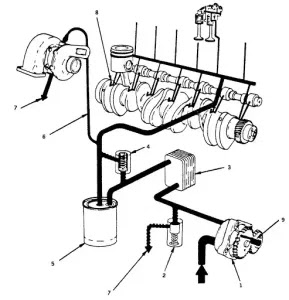The invention of the automobile is a complex story that spans several decades and involves the contributions of numerous inventors and engineers. This response aims to provide a concise overview of the key milestones and individuals involved while adhering to a 1000-word limit.
The concept of self-propelled vehicles dates back to ancient times, with early attempts made by various civilizations. However, the modern automobile as we know it today emerged in the late 19th century. At that time, several inventors were working independently to develop vehicles powered by internal combustion engines.
One of the most significant figures in the invention of the automobile is Karl Benz. Born in Germany in 1844, Benz was an engineer who devoted his efforts to perfecting a practical automobile. In 1886, he received a patent for his Benz Patent-Motorwagen, which is widely considered the first automobile. This vehicle featured a gasoline-powered internal combustion engine, three wheels, and a simple chassis. Benz's invention marked a turning point in transportation history.
Around the same time, Gottlieb Daimler and Wilhelm Maybach were also working on developing internal combustion engines and automobiles. In 1886, they unveiled their own motorized carriage, known as the Daimler Motor Carriage. It was a four-wheeled vehicle that incorporated several innovative features, including a high-speed gasoline engine, a spray carburetor, and a compact design. Daimler and Maybach's contributions were crucial to the advancement of automotive technology.
Another important figure in the early history of automobiles was Nikolaus Otto, a German engineer. In the 1870s, Otto developed the first four-stroke internal combustion engine, known as the Otto engine. This engine design became the basis for many subsequent automobile engines and greatly improved the efficiency and reliability of early automobiles.
In France, several inventors also played significant roles in the development of automobiles. Étienne Lenoir, a Belgian-born engineer, constructed one of the first practical internal combustion engines in 1860. His engine used coal gas as fuel and served as an important precursor to later advancements. Additionally, the French brothers André and Édouard Michelin revolutionized the automotive industry by introducing the pneumatic (air-filled) tire in 1888, significantly improving vehicle comfort and performance.
As the automobile industry progressed, other inventors made notable contributions. For instance, Wilhelm Maybach, after his collaboration with Daimler, founded the Maybach-Motorenbau company and developed high-performance engines that powered luxurious vehicles, earning him a reputation for excellence. Similarly, Henry Ford, an American entrepreneur, played a crucial role in the mass production of automobiles. In 1908, Ford introduced the Model T, the first affordable and mass-produced automobile, which transformed the industry and made cars accessible to the general population.
Throughout the 20th century, automotive technology continued to advance rapidly. Innovations such as electric starters, automatic transmissions, and hydraulic brakes were introduced, improving the safety, comfort, and convenience of automobiles. Many manufacturers emerged worldwide, including General Motors, Fiat, Ford, Toyota, and Volkswagen, among others, each contributing to the industry's growth and diversification.
In recent years, the automotive industry has witnessed significant advancements in electric and autonomous vehicles. Electric cars, powered by rechargeable batteries, offer a more sustainable and environmentally friendly alternative to traditional combustion engines. Companies like Tesla, founded by Elon Musk, have spearheaded the development and popularization of electric vehicles.
Autonomous vehicles, also known as self-driving cars, represent another transformative development. Various companies, including Waymo, Uber, and traditional automakers, have been investing in research and development to make self-driving technology a reality. These vehicles have the potential to revolutionize transportation by improving road safety, reducing traffic congestion, and increasing mobility for individuals who cannot drive.
In conclusion, the invention of the automobile is a complex story that involves the contributions of numerous inventors and engineers over several decades. Karl Benz, with his Benz Patent-Motorwagen, is widely credited with the creation of the first practical automobile. However, other pioneers such as Daimler, Maybach, Otto, Lenoir, Michelin, Ford, and many more played crucial roles in advancing automotive technology. Their collective efforts and innovations have shaped the modern automobile industry, leading to the development of electric and autonomous vehicles, which continue to redefine the future of transportation.








